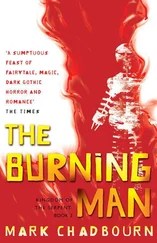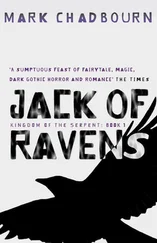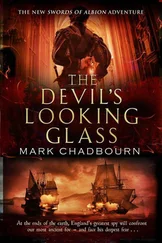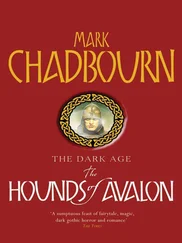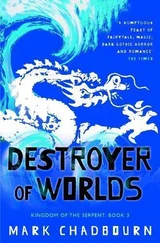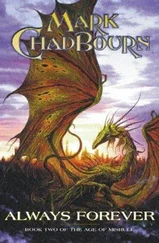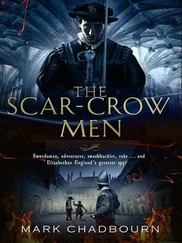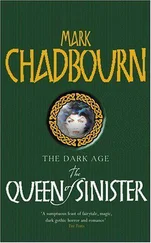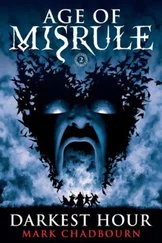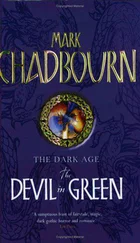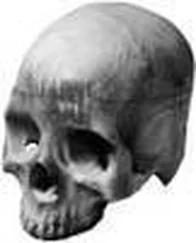Dumbfounded, Carpenter could barely respond to Drake's praise. He made his way down the steps from the poop deck, his mind struggling to reconcile the bitterness that had encysted his heart since Will had abandoned him with the new knowledge of what had been won.
As he gathered his thoughts by the rail in the salty spray, he decided this new information had to be conveyed to Launceston, whom he had not seen since dawn had broken. He searched the length of the deck, and then plunged into the stifling, near-deserted confines below, his puzzlement growing by the moment. Eventually, he had exhausted all possibilities apart from the sec tion of the hold containing the sail stores, timber, carpenters' tools, and all the items necessary to keep the great ship afloat.
When he called out, his voice was lost beneath the symphony of sound that filled every ship, the constant boom of waves against the hull and the chorus of creaking as every board flexed to cope with the pressures upon them. His view obscured by canvas hanging like drapes amid piles of timber, he worked his way through the obstacles, pulling back sheet after sheet.
As he drew back the final covering, he was convulsed with shock. Had he suddenly stepped into hell? As red as the Devil, Launceston loomed over a sticky mess, his knife still dripping. When he looked at Carpenter, fires blazed in his eyes, and it took a second for him to focus. With a faint, dreamy smile, he said softly, "What wonders to behold."
It took Carpenter several seconds to comprehend what lay before him. "Is ... is that the cabin boy?"
Launceston examined the mess, and appeared to see it for the first time himself. His smile now had the sheepish cast of a man caught out drunk before night had fallen. "Do not judge me, John," he said.
"Judge you?" Carpenter ran a hand through his hair as his thoughts reeled with all the possibilities that now lay ahead.
The knife slipped from Launceston's slick fingers and he stood up, his expression haunted. "I have ... unnatural desires, John. I know my shortcomings, and I fight every day to keep them under control, but what you said ... about being who we are ... in the shadow of death-"
"I did not mean this!" Head in his hands, Carpenter crashed onto a pile of timber. "I must think. Damn you! This will destroy everything!"
"We are who we are. Our natures rule us, for better or worse. What makes me like this makes me a valuable tool for England, and the queen, and Walsingham." He released a deep, juddering breath.
As Launceston's words settled on him, Carpenter glared. "They know?"
The earl did not respond directly. "I do not wish to be this way. My life is filled with torments," he said, his voice breaking. "This business makes us monsters to deal with monsters. I wish only the peace of a summer afternoon, but this is my world now, and always." With disgust, he looked down at what lay at his feet. Tears sprang to his eyes and streamed down his cheeks. "Help me, John," he pleaded.
After a moment, Carpenter stood and rested a hand upon his shoulder. "We must dispose of all this before it is discovered. And get you cleaned up." Carpenter reeled. He had always sensed Launceston was not like other men, but he had turned a blind eye to the extent of the darkness lurking within. Did that make him complicit in Launceston's atrocity? The notion sickened him.
"Thank you, thank you," Launceston muttered pathetically.
"We are in this together," Carpenter said with a sigh as he saw the magnitude of what lay ahead. "Damn you, Robert. Damn you."
CHAPTER 49

 reeping on deck when the sun had set, Will feared it was his last chance to board the grey-sailed ship. Since he had killed Hawksworth, every attempt had been thwarted by events beyond his control, and now, with battle looming, he had to risk all.
reeping on deck when the sun had set, Will feared it was his last chance to board the grey-sailed ship. Since he had killed Hawksworth, every attempt had been thwarted by events beyond his control, and now, with battle looming, he had to risk all.
Hawksworth had been missed the day after Will had disposed of the body, but it was presumed he had either thrown himself overboard in a fit of despair or had fallen; it was not an unusual occurrence. Will had spent the first few days brooding over the stupidity and confusion that had led to Hawksworth's death, but he knew it was one of the risks of his profession where every face was a mask. Soon the dark thoughts were washed from him, as he was sucked into the feverish preparations for the coming battle. Day after day the crew engaged in dry runs of the battle procedure under the urgent eyes of the clearly unsettled commanders. Fearful faces turned towards the grey horizon in every free moment, and rumours spread beneath deck like fire. Increasingly frustrated by the lack of opportunity to reach the Unseelie Court ship, Will could only wait. And then, that night, he seized his moment.
The night was clear, with a large swell, but there was no more rain, which would make his task easier. Below, the crew grabbed fitful hours of sleep in preparation for what would likely be an eventful day.
Locating the grapnel, Will waited patiently at the rail for the grey-sailed ship. Along the coast of England, beacons blazed, warning of the threat off the shore and calling the nation to war. It was Saturday, July 30, and the Armada was at anchor at Dodman Point in a state of heightened anxiety after sailing east along the Channel.
Earlier, he was convinced his final opportunity to find Mayhew and the Skull had slipped through his fingers. As the Spaniards watched the beacons, an English pinnace had swept across the bows and fired a single shot. But it was more to mock than threaten and the pinnace disappeared as the La Rata Santa Maria Encoronada returned fire to no avail. The English fleet was sighted, but they did not attack. Medina Sidonia and his Spanish commanders had made sure they had the weather gage, the best position in relation to the wind and coastline. They would wait out the night before battle commenced at dawn.
Finally, Will caught sight of the grey-sailed ship making its strange, circuitous journey around the fleet with what appeared to be increased urgency. Once it sailed alongside, he clambered onto the rail, braced himself against the rigging, and spun the grapnel before letting it fly. It fell short, splashing into the waves. Quickly, he hauled it in and adjusted his next throw for distance. This time it caught in the rigging of the grey-sailed ship. Tightly fastening his end to the Rosario's rigging, he gripped the rope firmly and then swung his legs up, crossing his ankles over the top to hang like one of the monkeys that performed in the market on Cheapside.
He'd left some slack, but his fear was that one or other of the ships would sail away and tear the rope free, plunging him into the black waves. Ignoring the blast of the wind, he shimmied along the rope. At the midpoint between the two ships, the swell swung the rope wildly and it took all his strength to hold on. Beneath him, the waves grasped for his back, driven high by the furious confusion of battling currents, two inches beneath him, one, his clothes soaked by the spray.
Gritting his teeth, he forced himself slowly up the curve towards the grey-sailed ship, one hand at a time. His fingers slid on the slick rope, his heart beating out every second the journey took.
By the time he reached the rail, his limbs were shaking from the strain. With a final effort, he hauled himself over the rail and onto the deck. The roll of the ship made him land harder and more noisily than he intended, and he quickly hid in the lee of the quarterdeck.
The stillness was unsettling. A strange odour hovered over everything, sickly-sweet but with a florid bitterness beneath, like mould on an apple in the autumn orchard. After a moment he heard the tramp of boots, which paused above his head and then moved towards the steps. Someone was investigating the dull sound of his landing.
Читать дальше


 reeping on deck when the sun had set, Will feared it was his last chance to board the grey-sailed ship. Since he had killed Hawksworth, every attempt had been thwarted by events beyond his control, and now, with battle looming, he had to risk all.
reeping on deck when the sun had set, Will feared it was his last chance to board the grey-sailed ship. Since he had killed Hawksworth, every attempt had been thwarted by events beyond his control, and now, with battle looming, he had to risk all.